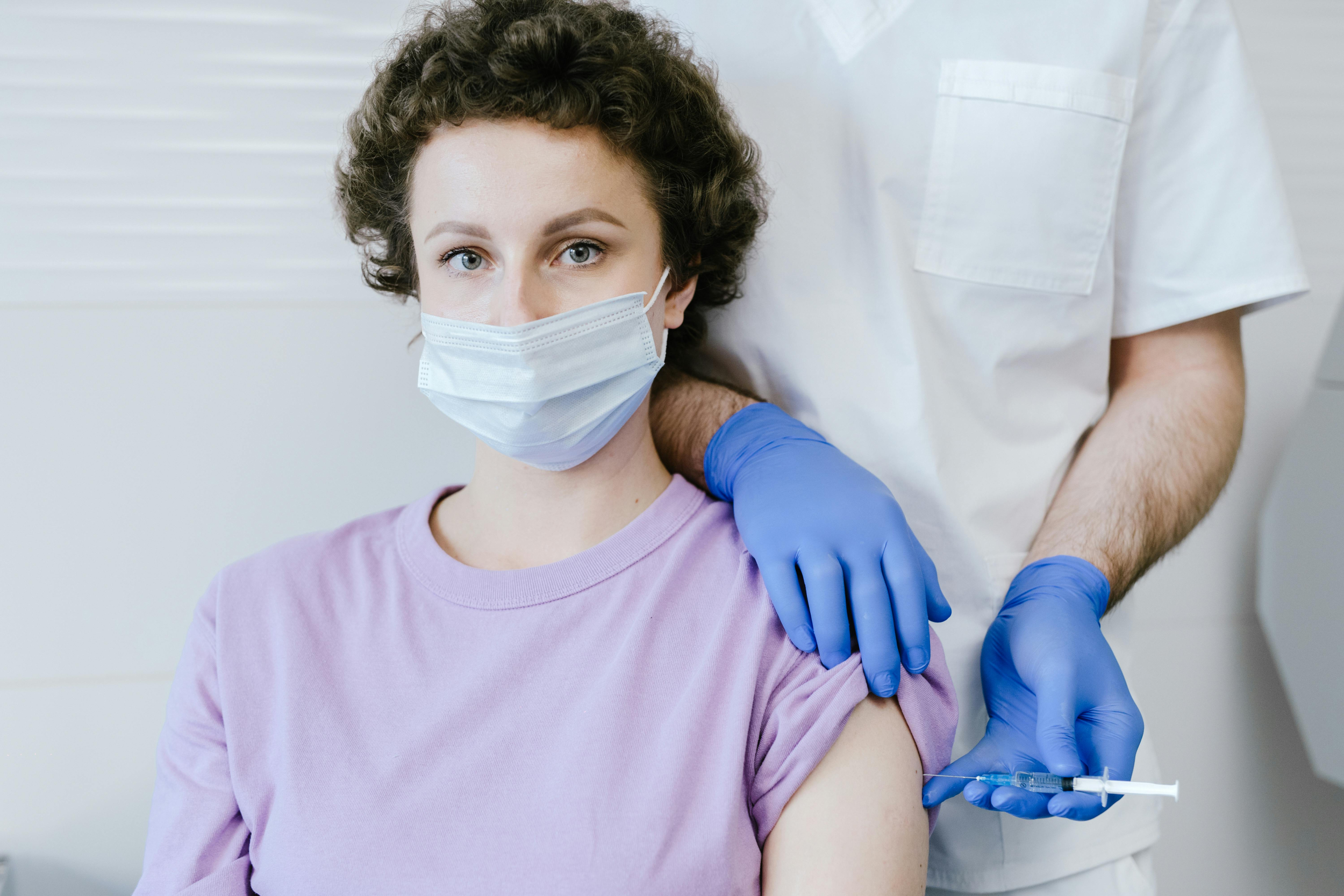A growing number of UK women are reporting a dramatic increase in breast size following COVID-19 vaccination, with some describing their breasts as ‘quadrupling’ in size.
This revelation follows closely on the heels of shocking images circulating online of a 19-year-old Canadian woman whose breast size quadrupled, a suspected rare side effect of Pfizer’s Covid vaccine that has been dubbed the ‘Pfizer boob job’ by some.
The ‘Pfizer Boob Job’
MailOnline has now unearthed data from the UK’s drug safety watchdog revealing 33 reported instances of ‘breast enlargement’ following vaccination with Pfizer’s COVID-19 vaccine. An additional 11 British women reported breast enlargement after receiving the AstraZeneca vaccine, while four experienced the same unexpected reaction following the Moderna vaccine.
It’s important to note that these reports, submitted to the UK’s Medicines and Healthcare Products Regulatory Agency (MHRA) Yellow Card system, are based solely on patient self-reporting. In other words, they have not been medically verified.
Experts emphasise that such unexpected bodily changes could be coincidental and unrelated to the vaccination. However, some medical experts have suggested a possible link between the vaccine and this unusual reaction.
A Rare Case Report
In a recent medical report on a young woman experiencing this complication, researchers hypothesised that an unusual immune system response to the vaccine may have triggered excessive cell growth in the breast tissue.
A recent medical report from researchers at the University of Toronto detailed the case of a Canadian woman who experienced a significant increase in breast size, from a B cup to a triple G cup, within six months of receiving two doses of the Pfizer COVID-19 vaccine.
The 19-year-old woman, who remains anonymous, received her first dose of the Pfizer COVID-19 vaccine in September 2022 and subsequently noticed a slight tingling sensation in her breasts, accompanied by a gradual increase in size.
The reactions intensified following her second dose, administered just three weeks later. Over six months, her breast size dramatically increased, reaching a triple G cup, a significantly larger size than the average British woman’s bra size, which is typically around 36DD.
A Case Of Gigantomastia Following COVID-19 Vaccination
Rapid breast growth, a rare condition medically termed gigantomastia, can arise from various factors. While the exact triggers remain an area of ongoing medical research, some cases have been linked to hormonal imbalances or adverse reactions to certain medications.
Gigantomastia ‘can cause pain, infection, discomfort, and issues with body image,’ according to the Cleveland Clinic. In a report published in Plastic and Reconstructive Surgery—Global Open, the medical team suggested that the vaccine may have triggered pseudo-angiomatous stromal hyperplasia (PASH), a potential underlying cause of gigantomastia.
PASH, itself a poorly understood condition characterised by the overgrowth of myofibroblasts within breast tissue, forming benign lumps, is a rare occurrence with fewer than 200 cases documented in medical literature. Notably, no prior instances of PASH have been linked to vaccinations.
However, the precise mechanism by which the vaccine might have triggered PASH remains unknown. Importantly, the woman in the report had no underlying health conditions, and while her breasts appeared swollen and saggy, no distinct masses were detected.
Vaccine-Induced PASH: Exploring The Link
Imaging studies, including ultrasound and CT scans, revealed slightly enlarged lymph nodes in the woman’s armpit region and an increase in blood vessel density, which the medical team attributed to the significant breast enlargement.
Histopathological analysis of tissue samples obtained through biopsies confirmed the presence of PASH. Despite a course of treatment involving steroids and antibiotics, no significant reduction in breast size was observed.
Eleven months after the initial vaccination, the patient opted for breast reduction surgery to reduce her breast size to a DD cup. Five months later, she underwent a second surgical procedure to address asymmetry issues, ultimately returning her breast size to approximately her original B cup.
While the temporal association between the COVID-19 vaccination and the onset of PASH suggests a possible link, the researchers emphasised that a causal relationship cannot be definitively established based on this single case report. They strongly advocated for further research to investigate this potential association.
‘The association between the COVID-19 vaccine, PASH, and breast hypertrophy warrants further investigation to comprehend the spectrum of reactions to the vaccine,’ they said. However, they criticised the tendency of some medical professionals to dismiss patient concerns about potential vaccine-related side effects.
Recognising Vaccine-Related Lymphadenopathy
‘Although a temporal relationship does not establish causality, dismissing patient concerns can erode trust.’ They wrote: ‘Physicians should consider and value patient concerns when developing therapeutic relationships.’
In 2021, researchers at the University of Pennsylvania observed that COVID-19 vaccination can cause temporary swelling of lymph nodes in the armpit. This can sometimes lead to unexpected findings on mammograms and breast ultrasounds, potentially prompting further investigations.







